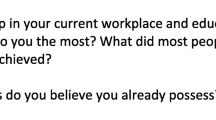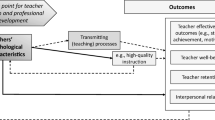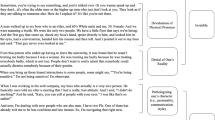Abstract
Gender roles invariably shape the styles of leadership people assume in outdoor education. This research investigates how society’s value of masculine leadership styles influence instructor and participant understandings of, and experiences in, the outdoors. Six practiced outdoor leaders were interviewed to critique their gendered experiences within the industry. While each of their stories were singular, collectively, the interwoven threads reveal marked intersectional similarities. The emergent themes observed included: breaking gender roles is a positive; leaders encourage gender incongruency; and, organisations focus on gender-balanced hiring. Interestingly, the findings, which were not overtly apparent to all participants included: female leaders feel the need to prove themselves; and, the mechanisms to better address gender fluidity in the industry are needed. The investigation also revealed unconscious bias and sexist views still prevalent in the industry. These included: the belief that women are less physically able; sexual harassment is normalized; and, working with female instructors can be more challenging. Our study raises questions about the buried dynamics of gender expectations and the undercurrents shaping both participants’ and leaders’ experiences in the outdoors. Conclusions are drawn which call for reimagining ways of moving our gendered leadership understandings and practices forward both at the coalface and during professional training.
Similar content being viewed by others
References
Ahmed, S. (2017). Living a feminist life. Durham: Duke University Press.
Avery, M. E., Norton, L., & Tucker, A. (2018). Blazing a trail … together: The need for mentoring and collaboration among women in outdoor leadership. In T. Gray & D. Mitten (Eds.), The Palgrave international handbook of women and outdoor learning (pp. 801–813). London: Palgrave Macmillan.
Bell, M. (1996). Feminists challenging assumptions about outdoor leadership. In K. Warren (Ed.), Women's voices in experiential education (pp. 141–156). Dubuque: Kendall Hunt.
Bell, M., Cosgriff, M., Lynch, P., & Zink, R. (2018). Nourishing terrains? Troubling terrains? Women’s outdoor work in Aotearoa New Zealand. In T. Gray & D. Mitten (Eds.), The Palgrave international handbook of women and outdoor learning (pp. 199–216). London: Palgrave Macmillan.
Bialeschki, M. D. (1990). The feminist movement and women's participation in physical recreation. Journal of Physical Education, Recreation and Dance, 61(1), 44–47. https://doi.org/10.1080/07303084.1990.10606412.
Black, A., & Garvis, S. (2018). Lived experiences of women in academia. London: Routledge.
Blankenship, D. (2010). Applied research and evaluation methods in recreation. Champaign: Human Kinetics.
Blenkinsop, S., Piersol, L., & De Danann Sitka-Sage, M. (2017). Boys being boys: Eco-double consciousness, splash violence, and environmental education. The Journal of Environmental Education, 49(4), 350–356. doi: https://doi.org/10.1080/00958964.2017.1364213.
Butler, J. (1993). Bodies that matter: On the discursive limits of “sex”. London: Routledge.
Canadian Research Institute for the Advancement of Women (CRIAW). (n.d.). Intersectional feminist frameworks: A primer. In M. Hobbs & C. Rice (Eds.), Gender and women’s studies in Canada: Critical terrain (pp. 38–42). Toronto: Women’s Press.
Cho, S., Crenshaw, K., & McCall, L. (2013). Toward a field of intersectionality studies: Theory, applications, and praxis. Signs, 38(4), 785–810. https://doi.org/10.1086/669608.
Crandall, B., Klein, G., & Hoffman, R. R. (2006). Working minds. London: MIT Press.
Creswell, J., & Poth, C. N. (2016). Qualitative inquiry & research design: Choosing among five approaches (4th ed.). Los Angeles: Sage Publishing.
Denzin, N. K., & Lincoln, Y. S. (2018). The Sage handbook of qualitative research (5th ed.). Los Angeles: Sage Publications.
DePoy, E., & Gitlin, L. (1993). Introduction to research: Multiple strategies for health and human services. St. Louis: Mosby.
Dover, T. L., Major, B., & Kaiser, C. R. (2016). Members of high-status groups are threatened by pro-diversity organizational messages. Journal of Experimental Social Psychology, 62, 58–67. https://doi.org/10.1016/j.jesp.2015.10.006.
Eagly, A. H., & Johnson, B. T. (1990). Gender and leadership style: A meta-analysis. Psychological Bulletin, 108(2), 233. https://doi.org/10.1037/0033-2909.108.2.233.
Ferrao, V. (2010). Paid work. Women in Canada: A gender-based statistical report. (6th ed.). Statistics Canada. Catalogue 89-503X.
Gillard, A., Buzuvis, E. E., & Bialeschki, M. D. (2014). Supporting transgender and gender nonconforming youth at summer camp. Journal of Park & Recreation Administration, 32(3), 92–105 Retrieved from https://js.sagamorepub.com/jpra/article/view/3635?fbclid=IwAR0ZGCIKDxep8UusC4jsBKFyXTSFwuUXRmCzIO1VHPePXzk3l-US8VA4Hso.
Gillham, B. (2000). Case study research methods. London: Continuum.
Gray, T. (2016). The “F” word: Feminism in outdoor education. Journal of Outdoor & Environmental Education, 19(2), 25–41. https://doi.org/10.1007/BF03400992.
Gray, T. (2018). Thirty years on and has the gendered landscape changed in outdoor learning? In T. Gray & D. Mitten (Eds.), The Palgrave international handbook of women and outdoor learning (pp. 35–53). London: Palgrave Macmillan.
Gray, T., & Mitten, D. (2018a). The Palgrave international handbook of women and outdoor learning. London: Palgrave Macmillan.
Gray, T., & Mitten, D. (2018b). Nourishing terrains: Women’s contributions to outdoor learning environments. In T. Gray & D. Mitten (Eds.), The Palgrave international handbook of women and outdoor learning (pp. 3–17). London: Palgrave Macmillan.
Gray, T., Allen-Craig, S., & Carpenter, C. (2017). Selective hearing: The unrecognised contribution of women to the outdoor profession. Journal of Outdoor and Environmental Education, 20(1), 25–34. https://doi.org/10.1007/BF03401000.
Haluza Delay, R., & Dyment, J. (2003). A toolkit for gender inclusive wilderness leadership. Journal of Physical Education, Recreation & Dance, 74(7), 28–32. https://doi.org/10.1080/07303084.2003.10609234.
Henderson, K. (1991). Dimensions of choice: A qualitative approach to recreation, parks and leisure research. State College: Venture Publishing, Inc.
Henderson, K. (1996). Feminist perspectives on outdoor leadership. In K. Warren (Ed.), Women’s voices in experiential education (pp. 107–117). Dubuque: Kendall/Hunt Publishing Co.
Humberstone, B. (2000). The ‘outdoor industry’ as social and educational phenomena: Gender and outdoor adventure/education. Journal of Adventure Education and Outdoor Learning, 1(1), 21–35. https://doi.org/10.1080/14729670085200041.
Kraemer, K. R. (2007). Solidarity in action: Exploring the work of allies in social movements. Peace & Change, 32(1), 20–38. https://doi.org/10.1111/j.1468-0130.2007.00407.x.
Loeffler, T. A. (1997). Assisting women in developing a sense of competency in outdoor programs. Journal of Experiential Education, 20(3), 119–123. https://doi.org/10.1177/105382599702000302.
Lorber, J. (2012). Gender inequality: Feminist theories and politics (5th ed). New York: Oxford University Press.
Lougheed, B. (2016). Cool things in the collection: The Two-Spirited collection. Manitoba History, 80, 59–61 x Retrieved from https://www.digitaltransgenderarchive.net/downloads/w3763689t.
Mawson, B. (2010). Gender and leadership styles in children’s play. Australasian Journal of Early Childhood, 35(3), 115–123. https://doi.org/10.1177/183693911003500315.
May, T. (1993). Social research: Issues, methods and processes. Buckingham. England: Open University Press.
McMurray, D. (2012). “A recreation which many ladies delight in”: Establishing a tradition of fisherwomen in Britain and North America prior to the mid-nineteenth century. Sport History Review, 43(2), 128–156. https://doi.org/10.1123/shr.43.2.128.
Merleau-Ponty, M. (1962). The phenomenology of perception. London: Routledge and Kegan Paul.
Mitten, D. (1985). A philosophical basis for a women’s outdoor adventure program. Journal of Experiential Education, 8(2), 20–24.
Mitten, D. (1992). Empowering Girls and Women in the Outdoors. The Journal of Physical Education, Recreation, & Dance, 63(2), 56–60.
Morse, J. M., Barrett., M., Mayan, M., Olson, K., & Spiers, J. (2002). Verification strategies for establishing reliability and validity in qualitative research. International Journal of Qualitative Methods, 1(2), 1–19. doi: https://doi.org/10.1177/160940690200100202
Newbery, L. (2003). Will any/body carry that canoe? A geography of the body, ability, and gender. Canadian Journal of Environmental Education, 8(1), 204–216 Retrieved from https://eric.ed.gov/?id=EJ881757.
Oakley, J., Potter, S., & Socha, T. (2018). In T. Gray & D. Mitten (Eds.), The Palgrave International Handbook of Women and Outdoor Learning Mirrored tensions: A mother-daughter introspection on gendered experience in outdoor recreation (pp. 375–390). London: Palgrave Macmillan.
Olesen, V. (2011). Feminist qualitative research in the millennium’s first decade. In N. K. Denzin & Y. S. Lincoln (Eds.), The SAGE handbook of qualitative research (pp. 129–146). Thousand Oaks: SAGE.
Overholt, J. R., & Ewert, A. (2015). Gender matters: Exploring the process of developing resilience through outdoor adventure. Journal of Experiential Education, 38(1), 41–55. https://doi.org/10.1177/1053825913513720.
Powell, G. N. (1986). Effects of sex role identity and sex on definitions of sexual harassment. Sex Roles, 14(1–2), 9–19. https://doi.org/10.1007/BF00287844.
Shores, K. A., Scott, D., & Floyd, M. F. (2007). Constraints to outdoor recreation: A multiple hierarchy stratification perspective. Leisure Sciences, 29(3), 227–246. https://doi.org/10.1080/01490400701257948.
Silverman, D. (2017). Doing qualitative research: A practical handbook (5th ed.). Los Angles: Thousand Oaks, Sage Publications.
van Manen, M. (2016). Researching lived experience: Human science for an action sensitive pedagogy (2nd ed). New York: Routledge.
Wall, K. (2018). Autoethnography, feminisms and the outdoor industry: A theoretical approach to practice (Doctoral dissertation). Retrieved from https://libres.uncg.edu/ir/asu/f/Wall_Katie_2018_Dissertation.pdf
Warren, K. (1996). Women’s outdoor adventures: Myth and reality. In K. Warren (Ed.), Women’s Voices in Experiential Education (pp. 10–17). Dubuque: Kendall/Hunt. https://doi.org/10.1177/105382598500800203.
Warren, K. (2002). Preparing the next generation: Social justice in outdoor leadership education and training. Journal of Experiential Education, 25(1), 231–238. https://doi.org/10.1177/105382590202500107.
Warren, K., Roberts, N. S., Breunig, M., & Alvarez, M. G. (2014). Social justice in outdoor experiential education: A state of knowledge review. Journal of Experiential Education, 37(1), 89–103. https://doi.org/10.1177/1053825913518898.
Warren, K., Risinger, S., & Loeffler, T. A. (2018). Challenges faced by women outdoor leaders. In T. Gray & D. Mitten (Eds.), The Palgrave international handbook of women and outdoor learning environments (pp. 247–258). London: Palgrave Macmillan. https://doi.org/10.1007/978-3-319-53,550-0.
Whittington, A. (2006). Challenging girls’ constructions of femininity in the outdoors. Journal of Experiential Education, 28(3), 205–221. https://doi.org/10.1177/105382590602800304.
Wittmer, C. (2001). Leadership and gender-role congruency: A guide for wilderness and outdoor practitioners. Journal of Experiential Education., 24(3), 173–179. https://doi.org/10.1177/105382590102400308.
Wright, M., & Gray, T. (2013). The hidden turmoil: Females achieving longevity in the outdoor learning profession. Journal of Outdoor and Environmental Education., 16(2), 12–23. https://doi.org/10.1007/BF03400942.
Acknowledgements
We greatly appreciate the reviewers’ and journal editor’s comments that served to strengthen ourpaper.
Author information
Authors and Affiliations
Corresponding author
Ethics declarations
Conflict of interest
The authors declare that they have no conflict of interest.
On behalf of all authors, the corresponding author states that there is no conflict of interest.
Additional information
Publisher’s note
Springer Nature remains neutral with regard to jurisdictional claims in published maps and institutional affiliations.
Rights and permissions
About this article
Cite this article
Davies, R., Potter, T.G. & Gray, T. Diverse perspectives: gender and leadership in the outdoor education workplace. Journal of Outdoor and Environmental Education 22, 217–235 (2019). https://doi.org/10.1007/s42322-019-00040-8
Published:
Issue Date:
DOI: https://doi.org/10.1007/s42322-019-00040-8




